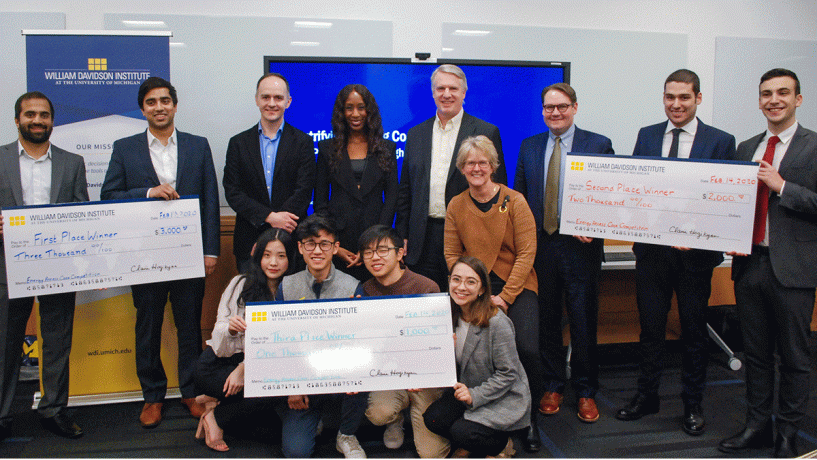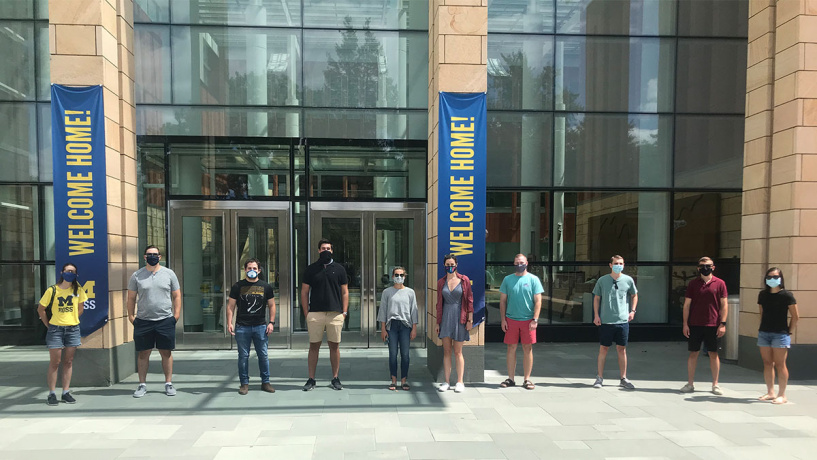Q&A: Three Full-Time MBAs Who Are Members of the Michigan Ross Energy Club
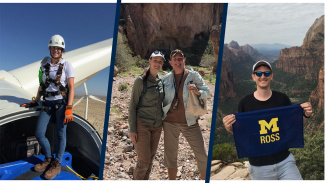
The Ross School of Business has a wide variety of offerings for students to get involved in clean tech and renewable energy to prepare them to be industry leaders after graduation.
For Earth Day, three students in the Michigan Ross Full-Time MBA Program, who are a part of the Energy Club at Ross, answered questions related to their interest and background in the sustainable energy sector and their future careers. They also discuss why they chose to pursue their MBA at Ross and about being a ECR club member.
Maggie Hartney
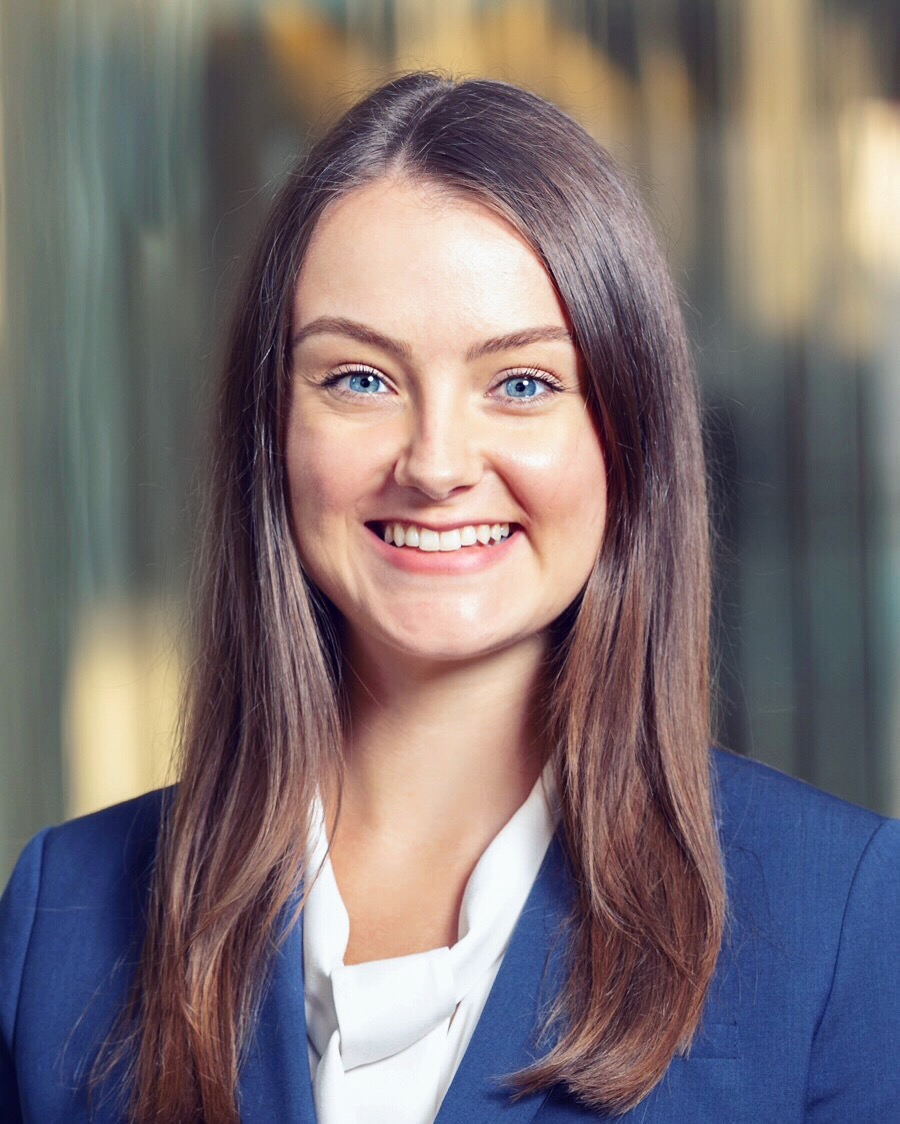 Program/Year: MBA ’21
Program/Year: MBA ’21
Post-Graduation Title/Company/Industry: Asset Manager, Invenergy, Renewable Energy
Why did you choose to pursue your MBA at Ross given your interest in energy?
When exploring MBA programs, I focused on those with an emphasis on careers with impact. I describe my career as mission-driven above all else, and I wanted to attend a school that would not only teach me business fundamentals, but also how to apply those teachings toward my goal of contributing to a more climate change-resilient future. Through my research I learned that Ross truly believes in “business for the greater good.” Ross also offers a concentration in business and sustainability that can be added to the MBA degree. Solidifying my decision to enroll at Ross was the presence of the Erb Institute community. Erb students pursue a dual degree with Ross and with the School for the Environment and Sustainability. While I am not a dual-degree student myself, the opportunity to take classes cross-registered with SEAS, like Climate Economics and Policy and Energy Project Finance, was very appealing.
What did you enjoy most about being a member of Energy Club and why?
Energy is a niche industry at most MBA programs. However, I felt like I had an active community of friends to learn from and network with at Ross. The club was pivotal in my decision to pursue a career in renewables post-MBA. For those without much energy-related experience, the club provides a ton of resources from day one. During my first semester, I got to lead a student consulting project for CohnReznick Capital where I learned about financing clean-tech ventures. I also attended the club career trek to San Francisco over fall break where we met with seven companies in the renewable and cleantech space.
What have you learned or experienced at Ross that you believe will be most beneficial in your future career in the energy industry?
After graduation, I will be working at Invenergy as an asset manager for wind power. I will oversee the operation of three wind farms, and my responsibilities will include identifying opportunities to improve the operational and commercial performance of these assets. The fundamentals provided in the MBA core classes such as operations management, managerial accounting, and corporate strategy will be invaluable. This knowledge is enhanced by my understanding of energy markets and project finance gained from electives I took both at Ross and at SEAS.
Larissa Korach
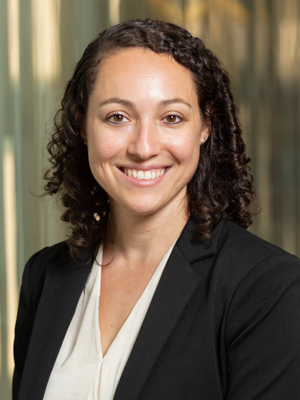 Program/Year: MBA ’21
Program/Year: MBA ’21
Post-graduation title/company/industry: Product Development Manager, AES, Clean Energy
What was your background in energy before coming to Michigan Ross?
I came from a background in engineering originally and I knew I was interested in alternative energy systems way back as an undergraduate, so I pursued a career in energy right out of school. I started out my career in an engineering-focused rotational program across the energy sector of the equipment maker Siemens in Orlando, Fla., doing rotations in both the fossil and wind power sides of the business. After the program, I landed in a permanent role in the wind division as a project engineer and later moved onto other project management roles. In those roles, I was mostly focused on helping to execute utility-scale wind farms across North and South America and to roll out new wind turbine product lines. I had an awesome experience there, but only saw the wind industry from the perspective of an equipment manufacturer. I realized that I wanted to broaden my horizons and learn more about the renewable energy space as a whole, while also gaining more experience with foundational business skills that I missed out on in engineering.
Why did you choose to pursue your MBA at Ross given your interest in energy?
I would say that there were three main things that drew me to Ross related to energy. The first is a strong and active Energy Club. This was something I looked for as a first pass when even applying to business schools, but I was able to confirm the strength of the Energy Club at Ross by chatting with the then co-presidents as an admitted student. They confirmed for me that the club here was small but mighty and I was won over. The second thing was the ability to do a concentration in sustainability within the MBA. Although I opted not to do the full dual degree with the School for Environment and Sustainability, I liked that I could still pursue the concentration by taking really interesting coursework related to energy, such as Energy Markets and Policy with Ross Professor Tom Lyon and Renewable Electricity and the Grid with Professor Michael Craig at SEAS. The ability to take energy-related courses at other schools within U-M to fulfill the requirements of the concentration was another added plus. And then finally, the opportunity to do a MAP project related to energy. MAP itself is such a unique draw of the Ross MBA Program, and the opportunity to rank projects related to my field of interest was valuable to me to ensure I could get even more experience working with a company tackling real-world energy problems.
How else have you been involved in energy while at Ross?
For my MAP project, I worked with a research team at Ford to think about a potential future business opportunity in the home energy management space. For this project, our team considered and learned about a wide range of solutions including on-site generation, storage, energy monitoring, and demand side management. And then a few short weeks later, I began my summer internship with Rivian, an up-and-coming electric vehicle manufacturer, in a strategy role on their Charging team. Through this internship, I was able to learn more about the adjacent mobility space as I realized that EVs and electrification are very closely tied with enabling a broader clean energy transition.
Gabriel VanLoozen
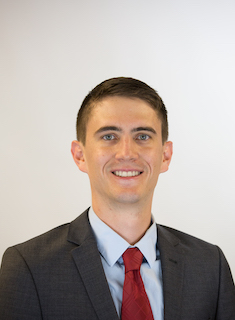 Program/Year: MBA/JD ’21
Program/Year: MBA/JD ’21
Post-graduation title/company/industry: Associate with Orrick, Herrington & Sutcliffe’s renewable energy practice
What was your background in energy before coming to Michigan Ross?
Like many Full-Time MBA students at Ross, I am a career switcher and did not have any experience in energy prior to my studies at Michigan. I started my graduate studies at Michigan Law in order to pursue my interest in renewable energy, given the regulatory intensity and importance of contracts in that space. For my first two summers (prior to enrolling at Ross), I worked at law firms in Tokyo and San Francisco, focusing on renewable energy project finance and M&A.
What did you enjoy most about being a member of Energy Club and why?
In my opinion, ECR is the most interdisciplinary club at Ross, with students from Ross, the School of Environment and Sustainability, Michigan Law, Michigan Engineering, and the Ford School of Public Policy. This provides ECR members with the opportunities to develop diverse interdisciplinary networks that are critical given the interdisciplinary nature of the energy industry. I also really enjoy the passion that ECR members have for the energy transition – it’s really motivating!
How else have you been involved in energy while at Ross?
I have been a Dow Sustainability Fellow, where I focused on a feasibility study for community solar in the City of Chelsea, Michigan. I have also worked with two energy startup projects, focusing on battery technology and 3D solar technologies, through the U-M Office of Tech Transfer. My Multidisciplinary Action Project (MAP) was with a solar microgrid company in Bangladesh, focusing on a market entry analysis and associated financial modeling work. I am also an investment associate on the Social Venture Fund at Ross, where I work on the Food Systems & Environment circle. FS&E engages with early-stage companies focused on the energy transition, as well as climate tech companies more broadly. I am also currently in a part-time internship with Huron River Ventures, which is focusing on investments in companies that are furthering the energy transition.





